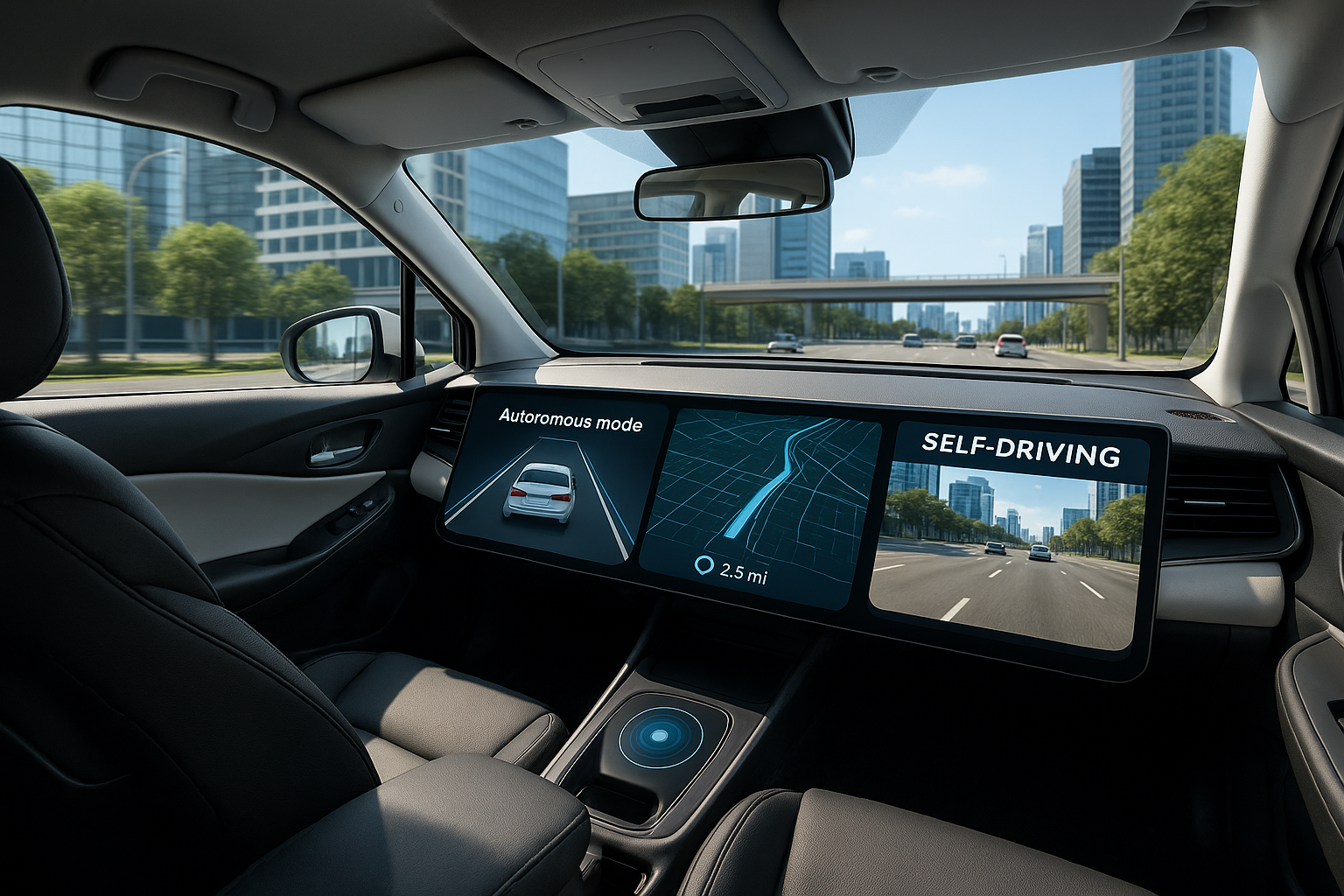Technological innovation is reshaping the automotive landscape, with vehicles now boasting groundbreaking features that offer drivers unprecedented safety, convenience, and customization. As futuristic concepts move from idea to implementation, drivers access advancements once reserved for sci-fi. Features like self-driving vehicles, biometric car keys, and adaptive driving technologies are quickly becoming part of daily life, redefining what it means to travel on four wheels. Anyone interested in exploring the latest models that integrate these state-of-the-art systems can learn more about available vehicles and their cutting-edge features. These developments don’t just make driving more convenient; they also boost safety, sustainability, and overall enjoyment on the road. As manufacturers continue to compete in this tech-fueled race, consumers can expect even more innovative options rolling out shortly. Whether you’re considering upgrading your car or staying tuned to the trends, understanding these key advancements will help you make informed decisions and stay ahead of the curve.
Table of Contents
Self-Driving Technology: The Road to Autonomy
The once-futuristic dream of sitting back while a car drives itself is closer than ever. Leading the way are companies like Waymo, whose autonomous ride-hailing services leverage artificial intelligence and a network of sensors to navigate complex city environments safely. Public pilots in significant cities, including Phoenix and San Francisco, demonstrate the promise of fully autonomous travel, allowing users to summon rides via an app with no human driver required. For those not quite ready for a completely driverless experience, innovations like Ford’s BlueCruise and Tesla’s Autopilot bring us incrementally closer to full autonomy. These advanced driver-assistance systems utilize sensors, cameras, and AI algorithms to keep vehicles centered in lanes, maintain safe following distances, and even manage lane changes on highways. As development continues, the distinction between driver and passenger is gradually fading, setting the stage for safer and more efficient roads in the coming decade.
Biometric Car Keys: Personalized Access
As consumers demand heightened ease of use and enhanced security, biometric car keys have emerged as a game-changing solution. Vehicles such as the Hyundai Genesis GV60 and select Tesla models can unlock, start, and customize the car using facial recognition or fingerprint scanning. This keyless entry enhances protection against traditional theft and ensures that settings—like seat position, climate control, and drive modes—are automatically tailored for each authorized driver. This technology stands at the intersection of personal convenience and robust security. The peace of mind provided by biometric keys will likely make key fobs and physical keys obsolete, while reducing the risks associated with lost or stolen credentials. As more automakers integrate biometrics, drivers can expect more intuitive and secure ways to interact with their vehicles.

Electric Vehicle Advancements: Customizable Ranges
Electric vehicles are not just about environmental sustainability but also about flexibility and choice. Manufacturers like Kia have introduced customizable battery configurations, as seen in the upcoming 2026 Kia EV4. By allowing drivers to select a battery range that matches their individual driving needs and budget, this innovation makes electric vehicles practical for a wider array of consumers and lifestyles. This modular approach to EV design not only empowers buyers but also helps lower the total ownership cost. Reduced worries about range anxiety and increased access to public charging infrastructure have resulted in a steep rise in EV adoption. As automakers invest further in battery research, even greater strides in range, charging speed, and affordability are on the horizon.
Adaptive Technologies: Enhancing Safety and User Experience
Adaptive vehicle technologies are transforming modern driving by elevating both safety and convenience. Advanced driver-assistance systems (ADAS) continuously monitor traffic conditions, support lane-keeping, and can apply emergency braking when potential collisions are detected. These features are increasingly becoming standard in many vehicles, offering enhanced protection without needing premium upgrades. At the same time, AI-powered voice assistants enable drivers to set navigation, adjust climate controls, and manage entertainment systems through simple voice commands, minimizing distractions and keeping eyes on the road. As these systems grow more intuitive and responsive, they create a seamless interaction between driver and vehicle. The result is a driving experience that is not only safer but also more personalized and efficient.
AI-Powered Predictive Maintenance: Proactive Vehicle Care
Keeping vehicles running smoothly and efficiently no longer requires guesswork or reliance on dashboard warning lights. AI-driven services like GM’s OnStar are changing the maintenance paradigm by monitoring vehicle health through sensors and machine learning algorithms. These tools can predict problems before they lead to costly breakdowns, helping owners schedule timely interventions and prolong vehicle lifespan. With maintenance reminders and diagnostics delivered directly to your mobile device or dashboard, drivers can avoid unexpected repairs and enjoy greater confidence on the road. As these AI-powered systems grow in sophistication, they promise to reduce costs further and help vehicles remain safe and reliable for years to come. The remarkable progress in car technology demonstrates how quickly yesterday’s fiction becomes today’s reality. These advances, from driving automation to connected maintenance, are making roads safer and journeys easier for everyone. As the automotive industry pushes the boundaries of innovation, there’s never been a better time to explore what’s next.

